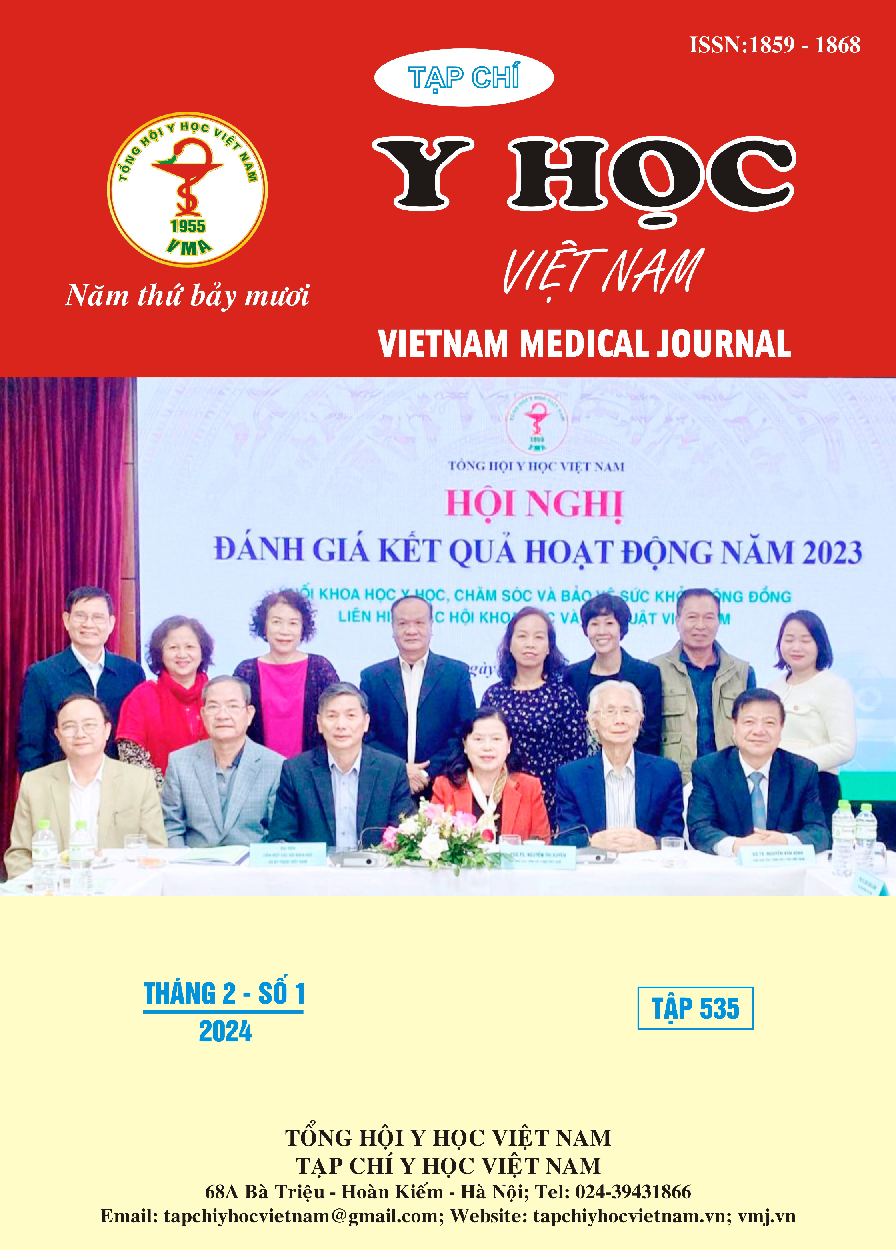TO STUDY CHARACTERISTICS OF SECRETORY ACTIVITY AND EXPRESSION OF SOME RELATED RECEPTORS OF PERIPHERAL BLOOD NK CELLS IN PROSTATE CANCER PATIENTS
Main Article Content
Abstract
Objective: To evaluate the characteristics of NK cell activity and the expression of some activating and inhibitory receptors of peripheral blood NK cells in prostate cancer patients. Subjects and methods: The study was conducted on 30 patients diagnosed with prostate cancer at K Hospital - Tan Trieu campus. To analyze the NK cell activity, we used the NK-VUE kit (with IVD standard) to measure the ability of peripheral blood NK cells to release the cytokine Inteferon-gamma (IFNγ). To assess the expression level of the activating receptor (NKG2D) and inhibitory receptor (NKG2A), we used flow cytometry techniques to evaluate the expression level of these two receptors on NK cell populations in peripheral blood mononuclear cells (PBMCs) of patients. We clarify the correlation among the above indicators. Result: The average levels of IFNγ secreted by NK cells (NKA-IFNγ) in the prostate cancer patient group is 340.17 pg/mL; 80% (24 cases) of patients have NKA-IFNγ ≤ 500 (pg/mL); and 70% (21 cases) have NKA-IFNγ ≤ 200 (pg/mL). The expression levels of NKG2D and NKG2A in NK cells were 76.46% and 19.43%, respectively. Conclusions: In patients with prostate cancer, the secretory activity of NK cells was reduced. There is a negative correlation between the level of NKG2A inhibitory receptor expression and NK cell activity.
Article Details
References
2. Pasero C., Gravis G., Guerin M., et al. Inherent and tumor-driven immune tolerance in the prostate microenvironment impairs natural killer cell antitumor activity. Cancer Res., 2016.76:2153–65.
3. Koo KC., Shim DH., Yang CM., et al. Reduction of the CD16(-) CD56bright NK cell subset precedes NK cell dysfunction in prostate cancer. PLoS ONE., 2013.8(11):e78049.
4. Barkin J., Rodriguez-Suarez R., Betito K. Association between natural killer cell activity and prostate cancer: a pilot study. Can J Urol., 2017.24(2): p. 8708-8713.
5. Kleiveland CR. Peripheral Blood Mononuclear Cells. In: Verhoeckx K, Cotter P, López-Expósito I, et al., editors. The Impact of Food Bioactives on Health: in vitro and ex vivo models [Internet]. Cham (CH): Springer; 2015. Chapter 15.
6. Lauren M., et al. Analyses of 123 Peripheral Human Immune Cell Subsets: Defining Differences with Age and between Healthy Donors and Cancer Patients not Detected in Analysis of Standard Immune Cell Types. Journal of Circulating Biomarkers., 2016.10(5).
7. Y.C. Lu., M.C. Kuo., J.H. Hong., et al. Lower postoperative natural killer cell activity is associated with positive surgical margins after radical prostatectomy. J Formos Med Assoc., 2020.119(11):1673-1683.
8. Shen Y., Lu C., Tian W., et al. Possible association of decreased NKG2D expression levels and suppression of the activity of natural killer cells in patients with colorectal cancer. Int J Oncol. 2012.40(4):1285-90.
9. Diefenbach A., Jensen ER., Jamieson AM., et al. Rae1 and H60 ligands of the NKG2D receptor stimulate tumor immunity. Nature., 2001.13;413(6852):165-71.
10. Wang X., Xiong H., Ning Z. Implications of NKG2A in immunity and immune-mediated diseases. Front Immunol., 2022.10;13:960852.


